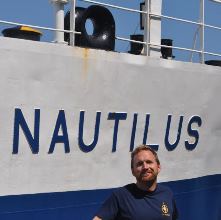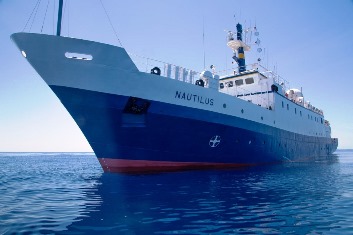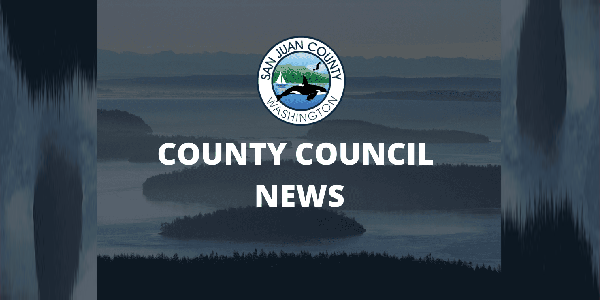Local Teacher selected to explore the ocean aboard exploration vessel Nautilus
-from Spring Street International School —
Timothy Dwyer from Spring Street International School [in Friday Harbor] has been selected as a 2016 Science Communication Fellow and will sail aboard Exploration Vessel (E/V) Nautilus during its 2016 expedition. Dwyer will join the Corps of Exploration aboard E/V Nautilus in late May as they explore the northeast Pacific Ocean. The expedition will use Remotely Operated Vehicles (ROVs) to maintain and repair an underwater oceanographic observatory spanning the Juan de Fuca tectonic plate. High definition video from all ROV dives will be streamed live over the internet via the expedition’s web portal.
Seventeen educators and twenty-two students from around the world have been selected from a worldwide pool of applicants by the Ocean Exploration Trust (OET) to participate at sea during the 2016 Nautilus Exploration Program expedition. OET, a nonprofit founded by Dr. Robert Ballard in 2008, has the mission to explore the ocean, seeking out new discoveries in the fields of geology, biology, maritime history, archaeology, physics, and chemistry while pushing the boundaries of STEM education and technological innovation. The selected educators and students hail from schools, universities, after-school programs, science centers, aquaria, and non-profit organizations in twenty states in the US and Australia. They will join the Nautilus Corps of Exploration during sea-going expeditions from May through September in the Eastern Pacific Ocean.
“It was a tremendous honor to be selected for this opportunity. Dr. Ballard has been a hero of mine since I was a little kid and it was a real privilege to meet him during the training workshop in Rhode Island this April. The group of educators brought together by this fellowship are similarly inspiring.”
As members of the Corps of Exploration, educators and students will stand watch alongside scientists and engineers, as well as participate in live interactions with shore-based audiences via Nautilus Live, a 24-hour web portal bringing expeditions from the field to future explorers on shore via telepresence technology at www.nautiluslive.org and via social media.
OET promotes science, technology, engineering, and mathematics (STEM) education around the world using the excitement of exploration and innovation to inspire the next generation of scientists and engineers. In 2014, OET began targeting its suite of education and outreach programs to specific communities through an exciting new initiative, the Community STEM Program (CSP). The CSP allows partner communities to engage community members in all of the educational programs OET offers, which are designed to guide young students to early career professionals and educators through a series of programs focused on STEM fields and vocations, increasing the impact the programs can have in any individual location. OET’s focus on the CSP represents a new approach that forges relationships across community partners with the common goal of increasing STEM literacy and proficiency.
“One of the major goals of our Nautilus Exploration Program is to inspire the next generation of explorers in STEM fields,” said OET Vice President of Education, Outreach and Communications, Allison Fundis. “We are very excited to provide educators and students with the direct experience of ocean exploration, while allowing them the opportunity to share that experience with their peers around the world.”
The 2016 Science Communication Fellowship, an initiative of OET, will bring seventeen formal and informal educators together from around the world as a part of the Nautilus Corps of Exploration. Fellows are charged with the responsibility of engaging students and the public in the wonders of ocean exploration, sharing discoveries from the 2016 mission, as well as aspects of daily life aboard a working exploration vessel. Fellows receive four days of intensive training at the University of Rhode Island Graduate School of Oceanography, and then spend two to three weeks aboard E/V Nautilus between the months of May and September, as it explores the Eastern Pacific Ocean. An equally important aspect of the program is for Fellows to bring the expedition and excitement of ocean exploration back to their home communities after they have returned from sea by incorporating their experience into classroom lesson plans, community presentation events, and through informal educational opportunities.
“I am BEYOND excited at the opportunity to visit the different deep sea habitats of the Juan de Fuca plate. The observatory monitors submarine canyons, abyssal plains, and hydrothermal vents with their associated tube worm communities and we’ll be visiting them all. Until they were discovered in the late 1970s, science didn’t even know that large animals could feed from chemicals coming from the earth; the fact that I can now visit them robotically and share these remotely operated vehicle dives live with my students and my community is mind-blowingly cool.”
Dwyer will participate in live audio commentary of streaming expedition video and question-and-answer sessions through the Nautilus Live website (www.NautilusLive.org) while aboard the ship; he will also engage them in events and activities upon his return. Global audiences can tune in to the website, Facebook or Instagram at NautilusLive, and on Twitter as @EVNautilus to follow their expedition.
About the Ocean Exploration Trust
The Ocean Exploration Trust was founded in 2008 by Dr. Robert Ballard to explore the ocean, seeking out new discoveries in the fields of geology, biology, maritime history, and archaeology while pushing the boundaries of STEM education and technological innovation. Our international program is launched from aboard the Exploration Vessel (E/V) Nautilus, offering live exploration to participants on shore and the public via live video, audio, and data feeds. The major 2016 expedition and education sponsors are the NOAA Office of Exploration & Research, the Office of Naval Research, NOAA Office of National Marine Sanctuaries, NOAA Pacific Marine Environmental Laboratory, the University of Rhode Island, CITGO, and additional private donors. Follow us online at www.nautiluslive.org, on Facebook and Instagram at NautilusLive, and on Twitter as @EVNautilus.
About Spring Street International School
Spring Street International School in Friday Harbor, WA, is a small, multicultural, independent, day and boarding school that provides students with a stimulating learning environment in a safe, rural setting. Students discover a love of learning and prepare for excellence in college. Challenging expeditions and travel experiences foster personal growth. Service in diverse communities teaches empathy, humility and the importance of collaboration with others. The School mentors students to achieve academic mastery, internal strength, perspective and integrity. Students become engaged, thoughtful, ethical participants in local and global communities.
**If you are reading theOrcasonian for free, thank your fellow islanders. If you would like to support theOrcasonian CLICK HERE to set your modestly-priced, voluntary subscription. Otherwise, no worries; we’re happy to share with you.**








